Psychiatry’s new research office brings medical students, residents to mind
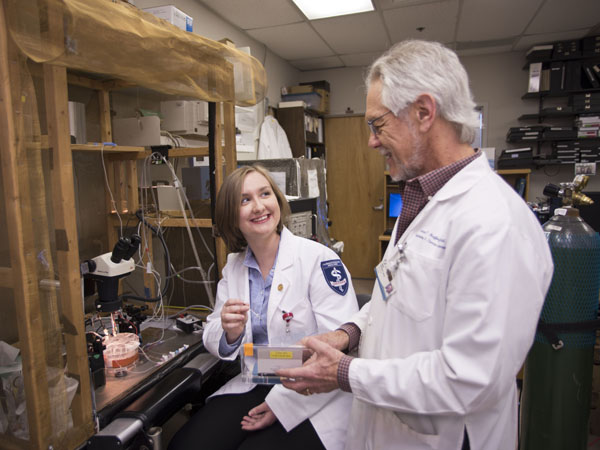
Searching for a meaningful relationship at the Medical Center, first-year medical student Sorsha Morris finally met her match: sleep deprivation.
Sleep deprivation in laboratory rats, that is.
This summer, Morris will embark on that particular area of research in a lab partnership arranged by a brand-new matchmaking service within the Department of Psychiatry and Human Behavior: the Office of Medical Student and Resident Research.
The office caters to trainees much like an eHarmony for scientific investigations of the brain.
“When you're a first-year student trying to settle into school, having one place to go to for information about research, having that point of contact, is really helpful,” Morris said.
That point of contact is the director of the new office, Dr. Kevin Freeman, assistant professor of psychiatry and human behavior, who pairs students with research mentors within the department, based on mutual, scientifically-related attractions.
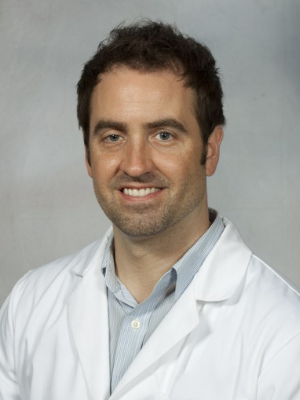
“The Department of Psychiatry and Human Behavior has one of the largest research portfolios on campus, and we are one of those rare clinical departments with significant depth in both basic and clinical research. The opportunities for research training with us are many, but, historically, have not been well advertised to our medical students and residents,” Freeman said.
“In addition to other departments, we offer great training that can help medical students decide if they want to incorporate research into their careers, and if so, to what degree.”
Without this new program, Morris may not have found what she was looking for, at least not as easily.
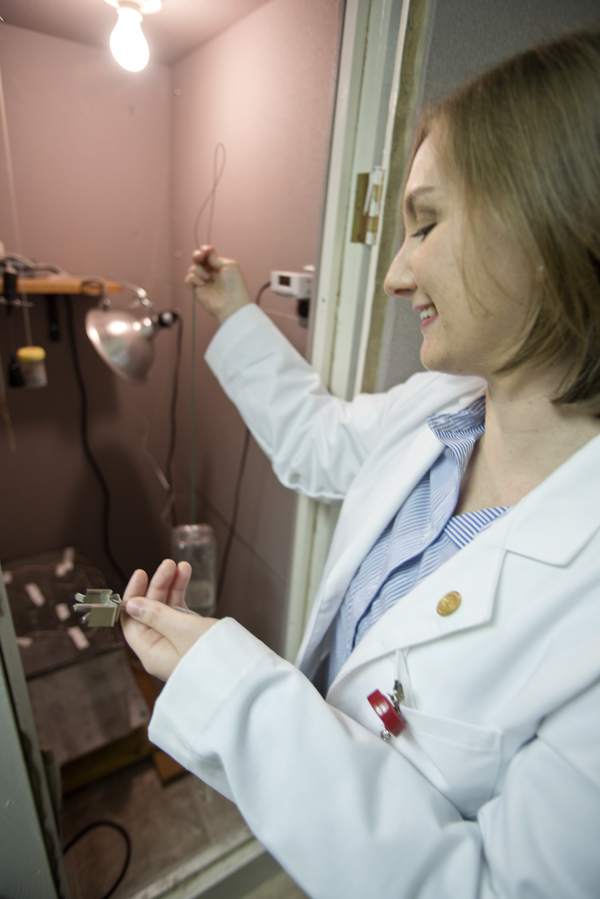
“I had always wanted to try research, to see if that's what I wanted to do, so my advisor put me in touch with Dr. Freeman,” Morris said. “We discussed my interests in neurology, including sleep research. Sleep research is a growing field, and I believe it would be cool to be part of that.
“But trying to get to know all of the faculty and what they're working on is kind of unwieldy. To help me out, Dr. Freeman gave me some articles to read, and I was especially drawn to a particular area of sleep research.”
While some medical students like Morris have already considered research opportunities in psychiatry, others may not even know they exist or where to find them, said Dr. Scott Rodgers, chair of the Department of Psychiatry and Human Behavior.
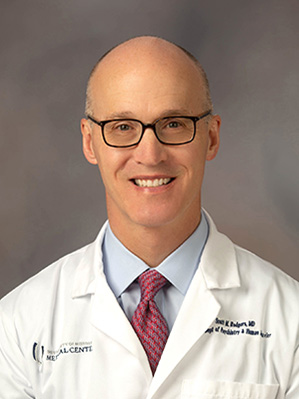
“Despite our department's longstanding history of excellence in research, we have not found good ways - until now - to involve our trainees in this work,” said Rodgers, who created the office.
“By bringing medical students and residents into our research projects, we expose them to the richness of this area of scholarship, enhancing their appreciation for the science behind mental illness.
“I believe many will find this research area appealing, regardless of their career goals.”
So far, Freeman has matched four medical students to researchers in the department.
“One of our goals at the Medical Center is to grow our clinical research portfolio, and this is a particularly high priority for our department,” Freeman said. “Exposing clinical trainees to research that matches their career interests is one way to do that.”
When physicians with this rich research experience remain at the Medical Center, they have a positive impact on the institution, Freeman said.
“We want to grow this talent pool in-house.”
Knowing the causes and origins of disease, the physical and biological “underpinnings” of treatments and how to improve those treatments “are great insights for any physician,” Freeman said.
There is another practical reason for pairing students with researchers: “The huge shortage in Mississippi of psychiatrists, particularly child psychiatrists,” said Dr. Scott Coffey, professor and vice chair for research in the Department of Psychiatry and Human Behavior, who leads the Division of Psychology.
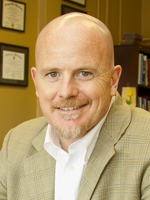
“Through the work of this new office, medical students may choose a residency in psychiatry. As for residents, we have not had an organized way of linking them with faculty members who are conducting research. This will fill that gap.”
For those who decide to enter this breach, the department offers some “world-class clinical researchers,” Freeman said.
That includes psychologists exploring the link between suicide and alcohol use, early detection and intervention for substance abuse, treatment of post-traumatic stress disorder, new treatments for alcoholism and anxiety disorders, child and adolescent obesity, and more.
As for Morris, she became fascinated by the studies of Rapid Eye Movement (REM) sleep conducted by Dr. James Shaffery, associate professor of psychiatry and human behavior, and assistant professor of pharmacology and toxicology.
His experiments are exploring the connection between the REM sleep stage and proper brain development.
“We will be looking at groups of young rats, disturbing their REM sleep, to see how that affects their behavior and brain,” Morris said.
Beginning in the summer in the department's Animal Sleep Research Lab, Sorsha will test, for instance, the performances and memories of sleep-deprived rats as they navigate a water maze.
“Sorsha's work will certainly advance this whole project,” Shaffery said.
And it's only fitting that a medical student - or any student - should find sleep deprivation a topic of more than passing interest, a thought not lost on Morris.
“Yes, it will be good information to know,” she said with a laugh, “considering what we may be going through ourselves.”


